| Welcome |
|
January 9, 2019
Abundance
Hi ,

This is the first newsletter of the new year, so I thought I would write on a subject that can support a positive tone for the coming year – abundance. Abundance seems like something most people want in their lives. There are certainly a lot of weekend seminars, books, videos, and training courses all focused on how to generate abundance in you life, or at least wealth. With all this support you would
think we would all feel the tremendous flow of abundance around us all the time. I don’t see that happening in the folks I see every day. Most people are concerned about lack, even obsessed with lack. Why is that?
As with most of my philosophic musings, I tend to look at things from a slightly different perspective. I ask, “What creates abundance?” Looking at the long history of human kind we are able to see some really obvious determinants of abundance within human societies. Looking back about 50,000 years we find very little abundance. This was a time of hunter gatherers. Their entire day was spent looking for food. They might steal left over
kill meat from a larger prey animal and eat well for a few days, but most of the time life was a constant struggle against starvation.
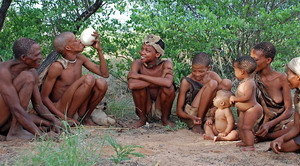
Fast forward to say 15,000 years ago and humans have developed better hunting tools like spears and bows. More importantly humans have started banding together into mutual support tribes to fight off predators and to work together to bring down larger game animals. By working together they were able to accomplish feats of food provision far greater than they could as individuals. Mutual cooperation created greater abundance. This is the key message.
As humans moved into an agrarian lifestyle, tribes turned into towns and then into cities. As people learned to cooperate to a greater and greater degree, greater abundance developed. People could specialize and develop skills that were impossible before when all their energy was spent on looking for food. Social structures were created, such as religion and government and laws. Because as people began to specialize, they  became different. The needs and wants of a blacksmith are different than the needs and wants of a pig farmer or a squash grower. Think of our relatively recent history 150 years ago in our western states with the terrific wars between cattle ranchers and sheep herders. To most of us the two groups would look almost the same. But to each other they were mortal enemies. Their needs in how they handled range
management conflicted, with one needing open range and the other needing fenced range land. Difference can create strife and conflict. Yet at the same time it is precisely the cooperative interaction of differences that creates abundance. became different. The needs and wants of a blacksmith are different than the needs and wants of a pig farmer or a squash grower. Think of our relatively recent history 150 years ago in our western states with the terrific wars between cattle ranchers and sheep herders. To most of us the two groups would look almost the same. But to each other they were mortal enemies. Their needs in how they handled range
management conflicted, with one needing open range and the other needing fenced range land. Difference can create strife and conflict. Yet at the same time it is precisely the cooperative interaction of differences that creates abundance.
I am a DIY kind of guy. I make all kinds of things that most folks simply buy. I do this because I want things made in a way that I cannot find available in the marketplace. When I find something made in a way I want, I am so grateful for its availability. I don’t have the physical time to make everything I want or need. I have to depend on others to have the skills and inclination to make things I want. I appreciate their efforts to produce
products I desire. For me, this is the essence of physical abundance. I produce a product or service that meets the needs of people and in exchange I am able to obtain products and services I want or need. On the surface it sounds simple. It’s not.
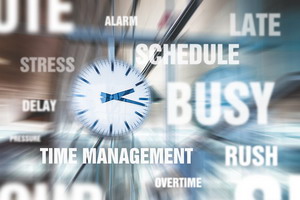
There is an evil in this garden of idyllic life. Everyone has needs and wants. Everyone has a limited amount of time and energy to expend toward getting those needs met. No one has an infinite abundance of time or work energy. Therefore, for the system to work there has to be fair exchange. Every time someone takes without giving back an equal exchange an imbalance is created. Gain without exchange creates lack. It does not matter if that gain
is through theft, unfair business dealings, entitlements, taxation without representation, or inflation created by printing money without real value behind it. All produce a destruction of abundance.
An interesting side note about entitlements. Do you know where the word comes from and what it is really about? It comes from the concept of holding title to land or properties showing right of ownership or use. To be entitled means you are given title to said land or properties by some greater authority. This idea was created back in a time where the sole boss of any area of land would be some sort of king for that area. The  king would entitle (give) ownership/use of pieces of land to various people who promised loyalty and to serve the needs of the king. It was the king’s way of delegating the work of managing the land and making the land profitable to his supporters in exchange for their promise to follow him and pay taxes to him. In no way were entitlements ever meant to be free. They were an exchange – goods,
services, and taxes in exchange for land ownership and prestige. king would entitle (give) ownership/use of pieces of land to various people who promised loyalty and to serve the needs of the king. It was the king’s way of delegating the work of managing the land and making the land profitable to his supporters in exchange for their promise to follow him and pay taxes to him. In no way were entitlements ever meant to be free. They were an exchange – goods,
services, and taxes in exchange for land ownership and prestige.
So lets take this to a deeper level. The feeling of abundance seems to be intrinsic to feeling happy. Most people are unhappy when they are feeling they lack their needs being met. This stuff is actually tracked by the United Nations in their yearly World Happiness Report. One of the key metrics they track is called social capital. It is a measure of people’s perceptions of
social support networks, corruption in government and business, and confidence in public institutions. Based on just financial data, the US should be the happiest place in the world to live, but it’s not. In fact it is rather a ways down on the list. Our feeling of social support is low, our trust in our government and business is even lower, and our trust in our public institutions is a joke. Once sacred cows like scientific research are now completely
untrustworthy. The editor of the most prestigious medical journal in the world – the New England Journal of Medicine - recently said that at least half of the studies in the journal are fake. Most of the rest are biased to report meaningless results as important findings. The hallowed objectivity of our universities has turned into little more than marketing tools for big business.
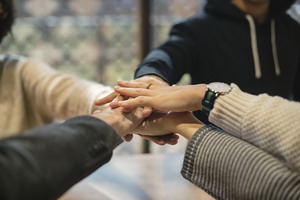
Big picture – this all comes down to trust. Abundance flows from the cooperative participation of differences in people making mutually beneficial exchanges with each other. The lubricant that allows this to happen is trust. You have to feel that you will get good value for what you have to offer so that you can get your needs met equitably. If you do not believe you will get good value, then you have no motivation to produce good value. If you see
others getting something for nothing, then you will want that as well. This type of thinking destroys abundance. This is looser consciousness. Trying to get more than your fair share based on equitable exchange of goods or services produces lack in the system. That lack produces instability and a rebound decline in participation with its natural decline in abundance as a result.
I know lots of people think they can get ahead by getting something for nothing or by getting more than their fair 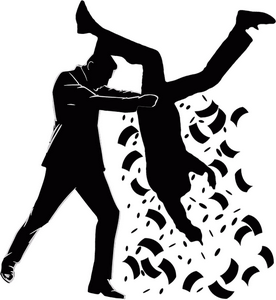 share, and it looks like it works in the short run. But the reality is that this behavior angers people and they decline future participation with you. You end up without support and ultimately stuck in lack. Its like cheating at cards. People figure out
you are cheating and you don't get invited back to play anymore. share, and it looks like it works in the short run. But the reality is that this behavior angers people and they decline future participation with you. You end up without support and ultimately stuck in lack. Its like cheating at cards. People figure out
you are cheating and you don't get invited back to play anymore.
This all sounds rather heavy, and that is because it is. The simple version is “play fair or we all lose.” The upside version of this is the formula for building abundance - “play fair and be trustworthy to build abundance in your life.” Abundance is not about simply getting more money as demonstrated in the happiness report. We have doubled our GDP per capita over
the last 40 years, yet our measures for happiness have dropped dramatically. Twenty years ago the average person had six close friends, now that number has dropped to between zero and one. Trust is at an all time low. This is not a good path to happiness and abundance.
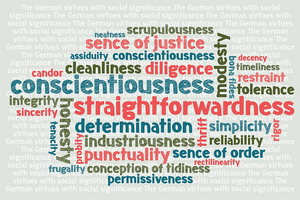
The cool news in all this doom and gloom is that the remedy is simple and begins within each of us. It does not require any government programs or huge social changes. It does not need extra time or energy or anything. It just takes each of us playing fairly and making all our interactions based on mutually beneficial exchanges – no games, no trying to get the advantaged position where you get more than you put out. It is a very old idea. We even call
it the Golden Rule - "Treat others as you would like them to treat you." It works and it is doable. When you live a trustworthy life, you attract other trustworthy people to participate with you. This, to me, is the real abundance - to have quality people in your life that you get to outflow your love and participation to.
Happy New Year
David
New Hours:
Mon - Fri 10 to 3:30
We will be working straight thru lunch to accommodate as many patients as possible. Thank you.
Ellen update: 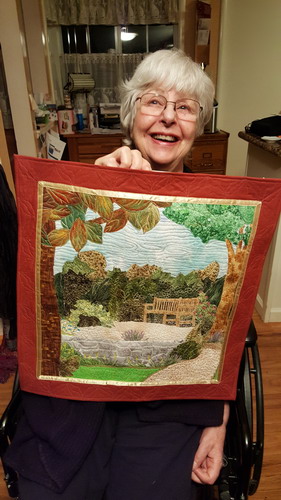 What was the prettiest Christmas I got this year? It had to be the fabric art piece made by Linda Edwards that Ellen bought me for Christmas. Several of Linda's pieces have been in the office lately, but this one never made it to the office because I liked it so much.
What was the prettiest Christmas I got this year? It had to be the fabric art piece made by Linda Edwards that Ellen bought me for Christmas. Several of Linda's pieces have been in the office lately, but this one never made it to the office because I liked it so much.
David & Ellen
|
| |
| |
| |
Computer neck pain
The head forward position created by spending lengthy amounts of time on a computer causes the neck to act like a fulcrum and increase the net effect of the weight of the head to about 45 pounds. The increased stress on the neck muscles triggers headaches, neck pain, eye pain, and eventually damage to the neck vertebra.
Computer neck
_____________________________________________
"The art of being happy lies in the power of extracting happiness from common things."
~ Henry Ward Beecher
__________________________________
10% of adults have food allergy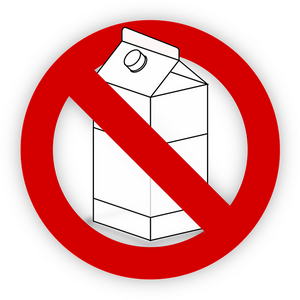
Twice that many may have food related symptoms like food intolerance, but only 10% are estimated to have actual life threatening allergies and need epi pens. Many allergies are adult onset with the most common being shellfish, milk, nuts, fish, egg, wheat, and soy.
Allergies
________________________
" Every artist dips his brush in his own soul, and paints his own nature into his pictures."
~ Henry Ward Beecher
_________________________________________________
Super Agers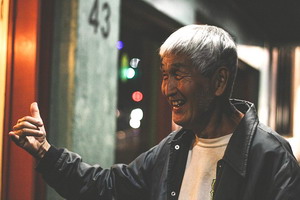
Brain degeneration and atrophy generally means cognitive decline. But some people show no decline. The key difference with these people is their attitude toward life - one of gratitude, service, and close relationships. The key has to do with stress. Stress makes our brains dysfunctional beyond just the effects of degeneration and the right attitude prevents this. This is a good article on this.
Super Agers
_________________________________________
" A person without a sense of humor is like a wagon without springs. It's jolted by every pebble on the road."
~ Henry Ward Beecher
_____________________________
Our address is 9725 Fair Oaks Blvd. suite A
Our hours are M - F 10 to 3:30
Finding the new location is very easy. Coming from highway 50 up Sunrise Blvd, you turn left and go up a block. We are on the right hand side - the building just past the Subway Sandwich shop. If you are coming down Sunrise from the Mall area then just turn right on Fair Oaks Blvd and up a block on the right.
If you are coming from the Roseville area you could come down Sunrise Blvd, but that is a long trek. It is probably shorter time wise to come down Auburn Blvd - San Juan Ave like you have been for the Sunset office, but instead of turning left at Sunset, keep going straight 3 more lights to Fair Oaks Blvd and turn left. Go down 2 lights to New York Ave, go through the intersection, and immediately turn into the turn lane once the center
divider ends. We are on the left.
You are free to reprint this article in your newsletter as long as you include the following statement in the same size type and color:
"This article appears courtesy of Fair Oaks Health News, offering natural and healthy solutions for body, mind and soul. For a complimentary subscription,
visit http://www.fairoakshealth.com"
Referral doctor for when we are out of town: Jennifer Webb DC
Jennifer Webb DC
6216 Main St. suite C1
Orangevale
988-3441
|
| |
|
|
|
_______________
to check on old newsletters
_______________
About Dr. DeLapp
|
Dr. DeLapp has been a philosopher, non-force Chiropractor, medical intuitive, and health innovator for over 35 years. He began experimenting with medical intuition in 1972 while studying physics at UC Davis. In addition to physics he designed and completed an individual major in the philosophy and psychology of education. Shortly after he choose to pursue a career in the only
truly health oriented profession available at that time, Chiropractic. He graduated with honors in 1981 with his doctorate and opened a private practice.
Since that time he has continued his research into the effects of consciousness and learning on health.
He developed the Biomagnetic Retraining system for correcting movement abnormalities.
Since 1991 he has focused on developing a powerful system for uncovering and assisting the mind-body connection in health and personal growth. The in-depth coaching, guided by the subconscious direction from the body, is called Heartflow and the simpler mind-body retraining for health and unfoldment he has named Gracework. Both are available at Fair Oaks Health.
Fair Oaks Healing
& Arts Center
Staff
 Dr David DeLapp DC
Dr David DeLapp DC
Chiropractor
Ellen Flowers FGM
Spiritual Life CoachEnergetic Nutritionist
Health Care Coordinator
Susan Richardson
Office Manager
Front Desk
Sherry Herrera
Front Desk Person
Susan McDonald
Catherine Cummings
New Products
Purity Oil Spray
Pain Relief
Essentials
CBDs plus 9 essential oils
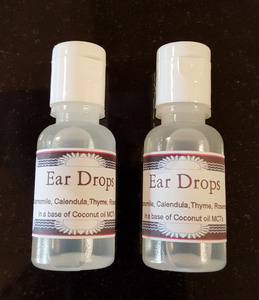
Ear Drops
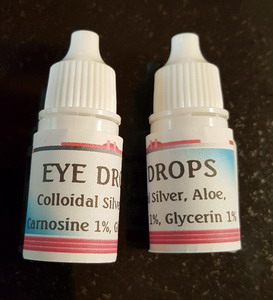
Eye Drops

Super Concentrated
Fish oil
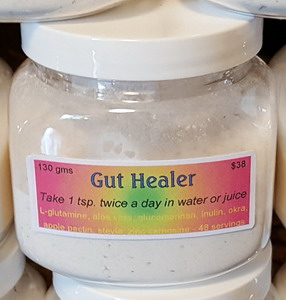
Gut Healer

Sinus Rinse
Powder

Balanced Salt
|
|

